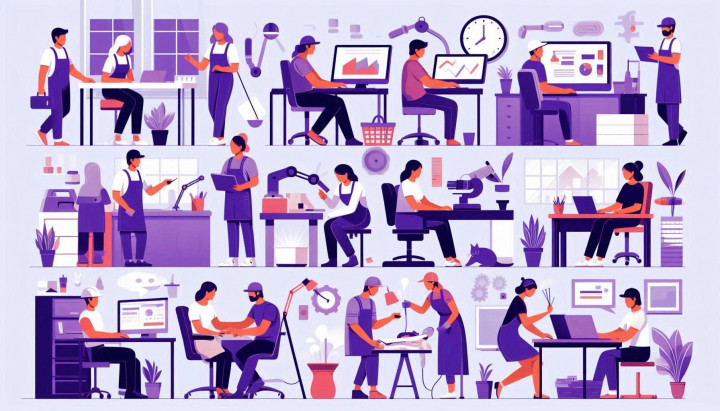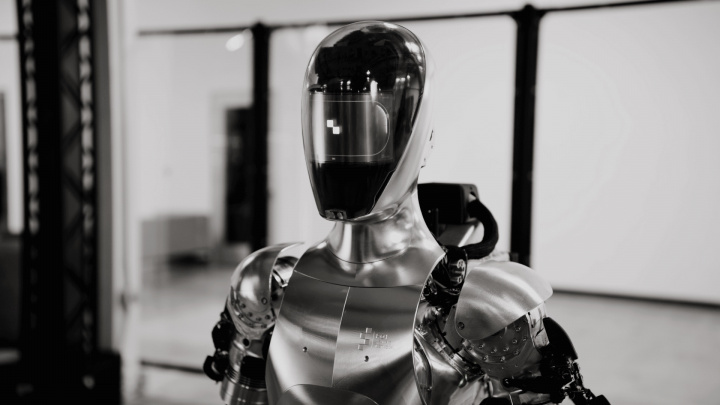The Efficiency Trap
Have you ever wondered why modern technology, supposedly designed to make our lives easier and save us time, doesn't actually result in more free time? Why do we work just as much, or perhaps even more, than our grandparents, despite being surrounded by washing machines, dishwashers, computers, and smartphones? The answer lies in a phenomenon recognized back in the Industrial Revolution, known as the Jevons Paradox.

The Mystery of the Steam Engine and Coal
The story begins in 19th-century England, where economist William Stanley Jevons noticed a peculiar phenomenon. Steam engine technology was rapidly advancing, becoming increasingly efficient, meaning less coal was needed to perform the same amount of work. It would have seemed logical for coal consumption to decrease. However, as Jevons described in his 1865 book, *The Coal Question*, the exact opposite happened: more efficient steam engines *increased* coal consumption.
"In 1865, the English economist William Stanley Jevons observed that technological improvements that increased the efficiency of coal-use led to the increased consumption of coal in a wide range of industries. He argued that, contrary to common intuition, technological progress could not be relied upon to reduce fuel consumption." (Wikipedia - Jevons paradox)
How is this possible? Jevons realized that the more efficient technology made energy production cheaper. This incentivized the wider use of steam engines and led to the rise of new industries. Ultimately, the increased demand surpassed the savings generated by the efficiency gains.
Generalizing the Jevons Paradox: More Than Coal
The principle of the Jevons Paradox isn't limited to coal and steam engines. It can be generalized to any resource, including time. As technology makes tasks more efficient, we tend to take on more tasks or set higher expectations for ourselves.
"Making something more efficient can often lead to using more of it, not less. This effect is called Jevons Paradox." (Sketchplanations - Jevons Paradox)
"The Jevons Paradox occurs when technological progress increases the efficiency with which a resource is used, but the rate of consumption of that resource rises due to increased demand." (Green Choices - The Jevons Paradox: When Efficiency Leads to Increased Consumption)
The "saved" time is often filled with new activities, so instead of having more free time, we become even busier. This phenomenon can be called the "efficiency paradox," the "productivity hamster wheel," or even "time poverty."
Modern Examples of the Jevons Paradox
We can find numerous examples of the Jevons Paradox in our everyday lives:
-
Faster Computers: Faster processors allow us to complete more tasks in less time. However, this often results in taking on more work or starting more complex projects.
-
Online Communication: Emails and social media theoretically make communication easier. In reality, however, we spend a lot of time managing digital messages.
-
Household Appliances: Washing machines and dishwashers save time on housework. However, many people set higher standards for cleanliness or fill the "saved" time with other activities (like work).
-
Fuel-Efficient Cars: More economical cars make travel cheaper, which can lead to more driving. So, instead of saving fuel, we might end up consuming more.
"The paradox is that as technology improves, it becomes more affordable, which leads to more people using it and, therefore, more energy being consumed." (Northeastern University - What is Jevons Paradox?)
The Rebound Effect
The mechanism behind the Jevons Paradox is often called the "rebound effect." This means that some or all of the savings from efficiency gains "rebound" and manifest as increased consumption.
"The rebound effect is a phenomenon that occurs when improvements in energy efficiency lead to lower energy costs, which in turn stimulate increased energy consumption." (University of Miskolc - The Implication or Validity of the Rebound Effect in Present European Energy Sector)
The extent of the rebound depends on the price elasticity of demand – that is, how sensitive consumers are to price changes.
Is There a Way Out of the Efficiency Trap?
The Jevons Paradox doesn't mean that technological progress is inherently bad or that we shouldn't strive for efficiency. However, it's crucial to recognize that technology alone won't solve our problems; sometimes, it can even exacerbate them.
It's important to emphasize that the Jevons Paradox is not an immutable law and doesn't apply in every single case. For instance, the Northeastern University article suggests that the paradox might not necessarily hold true for artificial intelligence: "But whether the Jevons paradox will always hold true for AI is still up for debate."
Being aware of the Jevons Paradox can help us view technological advancements critically and avoid the trap of automatically equating increased efficiency with more free time or reduced resource consumption. The solution lies in more conscious consumption, setting realistic expectations, and striving for a better work-life balance. Technology is merely a tool; the responsibility for how we use it lies with us.





